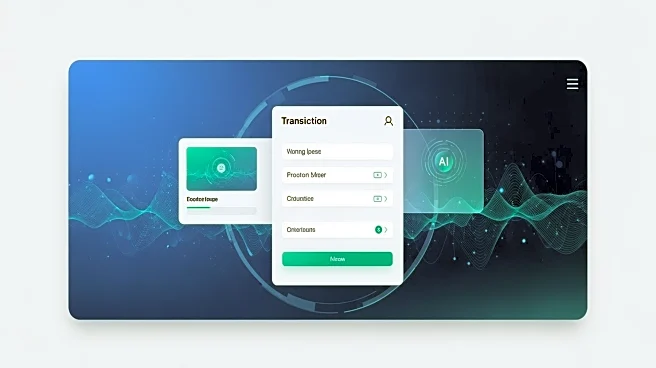What's Happening?
OpenAI has announced a new transactional layer for ChatGPT, known as the Agentic Commerce Protocol, developed in collaboration with Stripe. This innovation allows users to complete purchases directly within the chat interface, initially focusing on Etsy
and Shopify stores in the United States. The protocol aims to expand to more merchant categories and countries soon. This development suggests a future where ChatGPT could serve as a 'front door' for government services, enabling residents to interact with public services such as paying utility bills or renewing licenses through natural conversation. The integration of AI in government services could streamline processes, reduce workloads, and enhance accessibility for residents.
Why It's Important?
The introduction of ChatGPT's transactional capabilities could significantly impact how government services are delivered. By providing a unified entry point for various services, it could simplify interactions for residents, reducing the need for multiple logins and navigation through fragmented systems. This could lead to increased operational efficiency, as AI handles high-volume, low-complexity transactions, potentially reducing call center and counter workloads. Additionally, governments could gain valuable insights into user intent and service demand patterns, improving service delivery. However, this shift raises questions about data security, identity verification, and the potential dependence on private platforms for public service delivery.
What's Next?
Governments may need to modernize core systems with APIs to facilitate secure AI transactions. Pilot programs in controlled environments could help identify technical and policy issues early. Establishing governance and guardrails will be crucial to define the boundaries of AI capabilities and ensure transparency in interactions. Engaging with platform providers to shape standards for public-sector integrations will be essential. Clear communication with the public about AI interactions and data usage will be necessary to build trust. Ensuring equitable access and inclusion remains a priority as AI becomes a more prominent digital channel.
Beyond the Headlines
The integration of AI in government services could lead to long-term shifts in service delivery models, emphasizing digital equity and accessibility. Legal frameworks for AI-mediated transactions are still emerging, and governments will need to address liability, dispute resolution, and data ownership issues. The convenience of AI interfaces could create dependence on private platforms, necessitating strategies to maintain interoperability and avoid ecosystem lock-in. Compliance with regulatory standards for payment processing, data storage, and accessibility will be critical.















